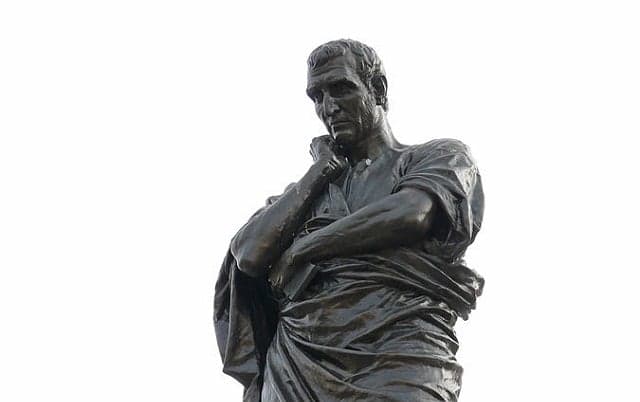Rome revokes ancient poet Ovid's exile – 2,000 years on

Rome's city council has called for Ovid to have his exile from the Italian capital revoked -- 2,000 years after the ancient poet died.
The Five Star Movement (M5S), which has the majority in the council and has said it is committed to correcting mistakes made by previous administrations, put forward the motion to rehabilitate Ovid.
Doing so, it said, would "repair a grave wrong".
The council unanimously approved the motion, which calls for "necessary measures" to be adopted to repeal the exile order, Repubblica reported. However, only the M5S took part in Thursday afternoon's vote.
Rome's deputy mayor and councillor for culture Luca Bergamo said the decision was "an important symbol because it's about the fundamental right of artists to express themselves freely in a society in which the freedom of artistic expression is more and more repressed".
Ovid has previously been acquitted by a court in Sulmona, the Abruzzo town where he was born, which passed its verdict onto Rome authorities.
READ ALSO: Mythbusting Ancient Rome: Did all roads actually lead there?
Ovid was banished to Tomis, modern-day Constanța in Romania, in 8 AD, on the direct orders of Emperor Augustus. The poet himself said his exile was due to 'carmen et error' – "a poem and a mistake".
This vague statement has led to much academic debate over the real causes, and on Thursday Bergamo pointed out that "the real reasons never went on historical record".
Ovid wrote several poetry collections describing the pain of banishment and begging to be allowed to return; however, he remained in Tomis until his death around ten years later.
Renaissance poet Dante had his exile revoked by his hometown of Florence in a similarly belated fashion in 2008. Seven hundred years after he was banished from the city on pain of death, the author of the Divine Comedy was posthumously rehabilitated by the Tuscan capital.
READ ALSO: Ten strange things you never knew about Dante
Comments
See Also
The Five Star Movement (M5S), which has the majority in the council and has said it is committed to correcting mistakes made by previous administrations, put forward the motion to rehabilitate Ovid.
Doing so, it said, would "repair a grave wrong".
The council unanimously approved the motion, which calls for "necessary measures" to be adopted to repeal the exile order, Repubblica reported. However, only the M5S took part in Thursday afternoon's vote.
Rome's deputy mayor and councillor for culture Luca Bergamo said the decision was "an important symbol because it's about the fundamental right of artists to express themselves freely in a society in which the freedom of artistic expression is more and more repressed".
Ovid has previously been acquitted by a court in Sulmona, the Abruzzo town where he was born, which passed its verdict onto Rome authorities.
READ ALSO: Mythbusting Ancient Rome: Did all roads actually lead there?
Ovid was banished to Tomis, modern-day Constanța in Romania, in 8 AD, on the direct orders of Emperor Augustus. The poet himself said his exile was due to 'carmen et error' – "a poem and a mistake".
This vague statement has led to much academic debate over the real causes, and on Thursday Bergamo pointed out that "the real reasons never went on historical record".
Ovid wrote several poetry collections describing the pain of banishment and begging to be allowed to return; however, he remained in Tomis until his death around ten years later.
Renaissance poet Dante had his exile revoked by his hometown of Florence in a similarly belated fashion in 2008. Seven hundred years after he was banished from the city on pain of death, the author of the Divine Comedy was posthumously rehabilitated by the Tuscan capital.
READ ALSO: Ten strange things you never knew about Dante
Join the conversation in our comments section below. Share your own views and experience and if you have a question or suggestion for our journalists then email us at [email protected].
Please keep comments civil, constructive and on topic – and make sure to read our terms of use before getting involved.
Please log in here to leave a comment.